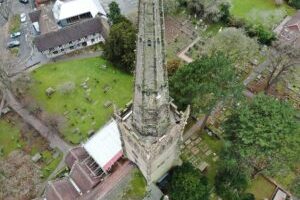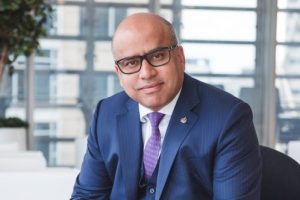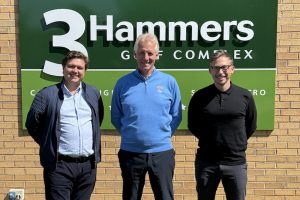Former Wasps owner sets out £100m+ claim against legal advisors

Wasps’ former owner has set out his £100m-plus claim against his legal advisors who he blames for ultimately being responsible for the collapse of the historic rugby union club.
In documents filed at the High Court and seen by TheBusinessDesk.com, Irish businessman Derek Richardson identifies “failures” by law firm Kennedys Law and its former partner Robert Dawbarn related to advice when the club’s ownership was moved into a Maltese investment vehicle.
His legal action seeks to establish that he was reliant on their advice and there is a direct link between the ownership change and the financial collapse of the club, which made his shareholding worthless.
Wasps’ parent company Moonstone was transferred into a Maltese SICAV structure in 2017, two years after the idea was first proposed.
But Richardson claims he was not advised that he “was merely an investor shareholder with no voting rights, dividend rights or ability to appoint directors to Moonstone or otherwise control Moonstone or its subsidiaries” which included the holding company for the rugby union club and the stadium company, Arena Coventry.
The consequences of the ownership structure created complications and delays when the rugby union club needed to raise funds in 2021 and, Richardson claims, was ultimately responsible for the withdrawal of proposed support which set off the chain of events that led to Wasps’ collapse.
In the claim, Richardson believes if he was advised correctly on the SICAV, or had full control of Moonstone and its subsidiaries, Wasps would have secured funding, been able to repay all creditors and be a company of substantial value still trading today.
The total value of Richardson’s claim is likely to exceed £100m. Wasps was valued at £62m-£72m in 2017 by Grant Thornton, which didn’t include a £20m shareholder loan in the business, while Richardson will also look to rely on “the potential uplift due to the value of the proposed hotel, medical facility and retail development”.
He is also claiming for £2m of fees paid to his advisors, as well as damages, costs and interest.
Richardson bought Wasps in 2013, three years after he sold insurance broker 123.ie in a deal that earned him more than €50m (£43m). He was responsible for moving the rugby union club from Wycombe to Coventry in 2014.
Wasps collapsed in October 2022 with debts of £95m, days after fellow West Midlands Premiership rugby club Worcester Warriors also went into administration.
Wasps raised a £35m bond in 2015 to support the move to Coventry and its ambitions, which was due for repayment in May 2022.
The refinancing was led by international wealth management firm Hottinger, which acted as Richardon’s family office. It was Hottinger’s director Mark Robertson who first recommended shares be transferred into a SICAV structure in Malta.
The benefits of the move were said to include attracting new investors, Richardson’s net worth would increase by £70m, he could obtain lending using the SICAV shares as collateral, and it would allow capital to be raised quickly for new projects.
Richardson says that he was dependent on Dawbarn and Robertson, as he had no experience of this investment vehicle and proceeded with the plans. He claims that Dawbarn was aware that it was essential for Richardson to retain his status as the ultimate owner of Wasps.
In April 2017, the shares were transferred and a side letter was created which gave Richardson comfort that he could unwind the SICAV quickly and easily if the structure was found to be unsuitable.
Wasps had invested in building a training facility in Henley in Arden and had been approved for a £2.5m loan from Cynergy Bank in November 2021. It also obtained a loan from the Department for Culture, Media and Sport for £2m and lined up funding of between £2m and £6m from Warwickshire County Council and Coventry City Council.
But Cynergy Bank said it would not lend to a company which was connected to Malta, a country in a Financial Action Task Force grey zone. The proposed council funding was also withdrawn when Cynergy backed out.
Richardson’s claim sets out his belief that the Maltese SICAV ownership, and the subsequent failure to move the ownership out of Malta, meant Wasps missed out on up to £8.2m of funding.
This directly led, he claims, to Wasps not being able to refinance the £35m bond and not being able to maintain its time-to-pay agreement with HMRC, which resulted in a winding-up petition and the club’s administration and collapse in October 2022.









